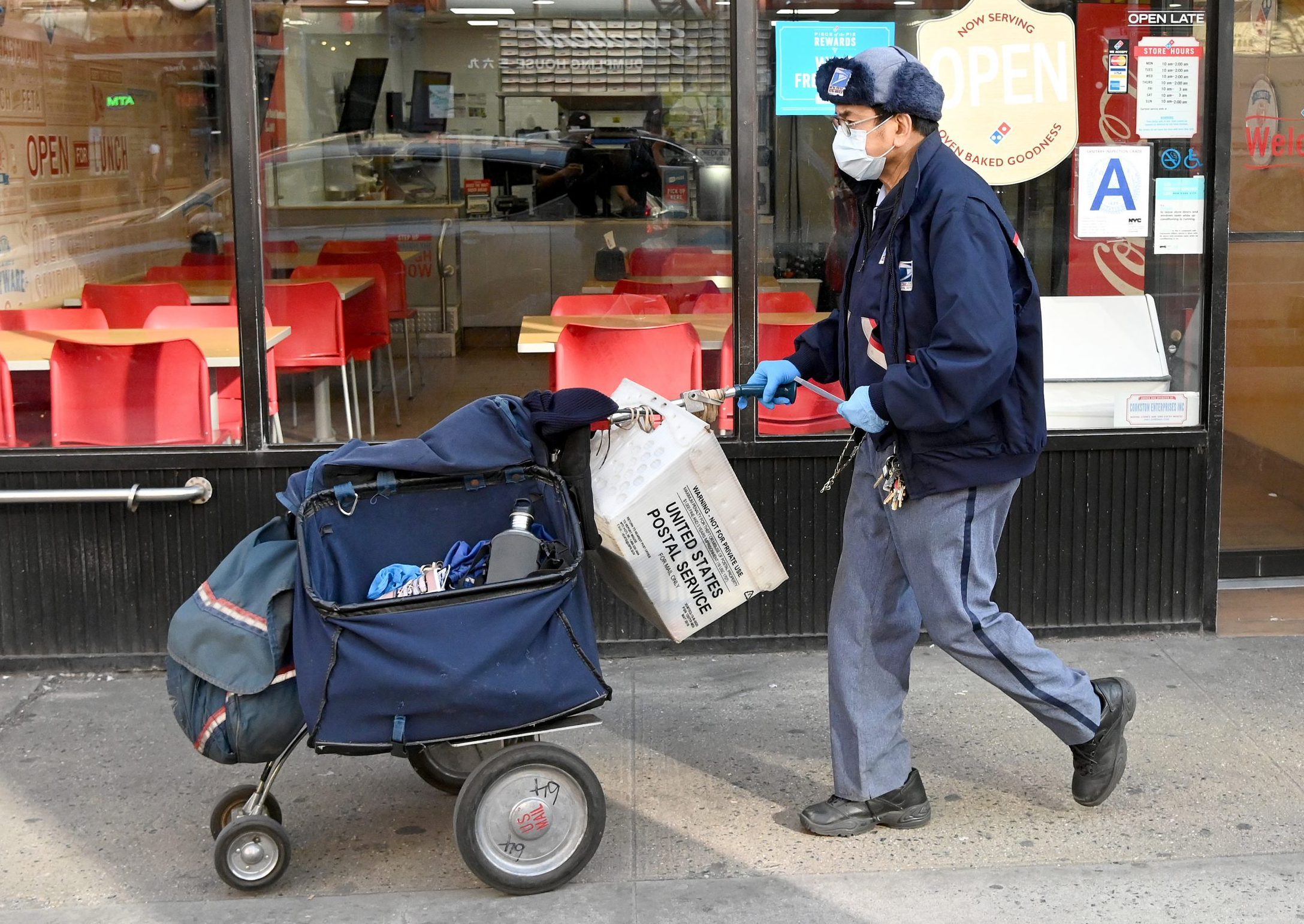Neither Snow Nor Rain Nor Heat Nor…Coronavirus?

With its unfunded debts and liabilities north of $140 billion, the United States Postal Service (USPS) has no shortage of issues. Now the beleaguered agency is facing a new, historic test: the spread of the coronavirus.
At a time when the federal government is actively trying to keep its workforce at home and away from each other, thousands of postal workers must continue going door-to-door to deliver mail to hundreds of millions of Americans. This is a harrowing challenge for the USPS, which has already taken encouraging steps to mitigate the spread of the pandemic. But there’s still more the agency can do to protect consumers and its own workers.
From CPAC attendees to students at a high school basketball tournament to, yes, even Tom Hanks, stories abound about COVID-19 cases. Yet perhaps most concerning of all is the case of a Washington State postal worker assigned to the Seattle Network Distribution Center. Similar cases then followed at the Westchester Processing and Distribution Center in New York. While these workers primarily operate machinery and don’t interact with the public, they can come into contact with workers who handle packages and mail. Conceivably, millions of postal consumers could have had second-degree contact with the infected workers.
Thousands of postal employees, in turn, have second-degree access to foreign postal staff, who are more likely to have had direct and sustained exposure to coronavirus patients. Postal leadership has been helpful in trying to limit exposure, releasing a 2020 Pandemic Influenza Plan, which contains policies and procedures “generally applicable to a potential COVID-19 pandemic.” The recommendations are mostly common sense, advising postal workers to maintain a safe distance from consumers and offering face masks upon request. The agency followed up by urging supervisors to offer “liberal sick leave” policies to their workers.
Preparation and sick leave policies are good steps in the right direction, but USPS leadership must make sure that supervisors get the memo. According to American Postal Workers Union (APWU) western regional coordinator Omar Gonzalez, “as in the past, directives emanating from Washington do not always filter down to or are acted upon by managers tasked with ensuring the nation’s mail is processed and delivered often hampered by short staff. Safety is seldom first to the bosses.” These concerns have prompted the APWU to call for due diligence in the workplace, including the regular cleaning of shared operation work areas.
Most consumer-facing postal workers, of course, are trying their best to avoid spreading coronavirus despite the clear risks posed by visiting quarantined households. But even if they get sick, they may be afraid to report their illnesses to their bosses for fear of losing their livelihoods. According to a recent analysis by ProPublica, the USPS fired more than 40,000 workers for injuries incurred on the job over a five-year period (2006 to 2011). While this “National Reassessment Program” has since ended, the USPS has not compensated those employees for wrongful termination. The U.S. Equal Employment Opportunity Commission is currently going through thousands of these cases and the USPS is disputing each ex-worker’s allegation.
This has fed into persistent fear and low morale among USPS staff, who believe they could, say, contract a deadly disease on the job and get terminated with no financial recourse. Adversarial leadership and poor management-employee relations all but guarantee that postal workers will try to “brave it out” if they get COVID-19 symptoms rather than asking their bosses for time off.
It’s difficult to maintain discipline in such a chaotic and uncertain work environment, and management must do everything in its power to shore up morale as the coronavirus spreads. The agency must do its best to create safe, clean work environments for postal workers across the country. It must also make clear that its workers can come clean about their symptoms without their jobs or compensation being put on the line. The Pandemic Influenza Plan is a good start, but the agency must continue to do its part to contain COVID-19.
Ross Marchand is the director of policy for the Taxpayers Protection Alliance.
Comments